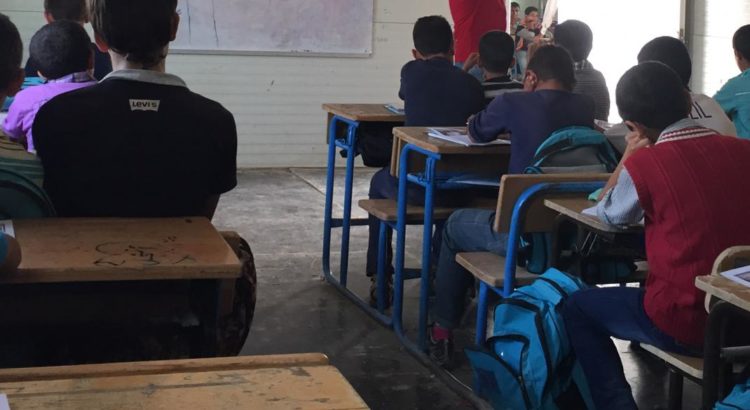Refugee Children Have the Right to a Full Education
Breanna Small
Mohammed should be in a 9th grade classroom right now. Instead, he spends his days selling napkins and dry-cleaning clothes. Mohammed has lived in Jordan for seven years, since his family fled Syria. He desperately wants to study, but his family struggles to meet their most basic needs, and they can’t afford the cost of transportation to school. He is just one of millions of refugee children denied an education today.
Human Rights Watch recently spoke with refugees in Jordan whose children are out of school. The reasons vary. Some cannot afford basic costs. Others faced administrative barriers when they tried to enroll. Still others lament the quality of instruction, as teachers are not trained to work with students dealing with trauma. And children with disabilities often find that schools do not accommodate their needs. Refugee children all over the world face these challenges, which are only compounded as they grow older.
The numbers reflect this grim reality. Though international law provides that secondary education needs to be available and accessible to all, only an estimated 24 percent of refugee children attend secondary school worldwide. Children who don’t complete secondary education are more likely to suffer other human rights abuses, such as child labor and early marriage. Yet secondary education for refugees remains overlooked and underfunded.
This week’s Global Refugee Forum in Geneva presents an opportunity to tackle this problem. Over three days, governments will have the chance to make pledges to improve refugees’ lives. Education is high on the agenda. Participants should consider children like Mohammed, and commit to advance secondary education by pledging to support better teacher training, funding for psychosocial activities and transportation to school, and improvements in school infrastructure and training to better accommodate children with disabilities.
There is momentum to build on. In September 2019, the United Nations refugee agency, UNHCR, pledged to help expand secondary education to at least one million refugees. Nongovernmental organizations such as the Inter-Agency Network for Education in Emergencies, Education International, and Jesuit Refugee Service have also pledged support for secondary education.
These are important steps, but they won’t work unless host governments step up, too. Outcomes in Jordan – which has seen improvements since waiving secondary school fees and documentation requirements, but where many challenges remain – show that countries still need to remove multiple barriers to education.
Refugee children are waiting. It’s time to provide the support necessary for them to be able to access their right to a full cycle of education, including secondary school.
Autor: Breanna Small






 Users Today : 40
Users Today : 40 Total Users : 35459946
Total Users : 35459946 Views Today : 46
Views Today : 46 Total views : 3418511
Total views : 3418511